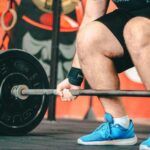Caffeine Might Be Destroying Your Testosterone—Here’s When To Actually Drink It ☕⛔
Caffeine is a daily staple for millions of men—but when and how you consume it could make or break your hormones. Understanding caffeine testosterone timing allows you to unlock peak performance, mental sharpness, and long-lasting energy without hormonal crashes.
Caffeine Timing: Hormonal Chaos vs Strategic Boost
| Timing | Hormonal Effect | Energy Impact |
|---|---|---|
| 6–8 AM | Spikes cortisol, suppresses T | Jittery, quick crash |
| 9–10:30 AM | Balances cortisol, supports T | Smooth focus |
| After 2 PM | Suppresses melatonin | Disturbs sleep & recovery |
The Testosterone Cost of Poor Caffeine Habits
Chugging coffee first thing in the morning, skipping meals, or drinking caffeine late in the day may spike cortisol and interfere with your testosterone rhythm. Caffeine isn’t the enemy—but timing is everything.
How Caffeine Affects Your Hormonal System
Caffeine stimulates the adrenal glands, increasing alertness and energy. But it also elevates cortisol, the stress hormone that competes with testosterone. If consumed in excess or at the wrong time, it can disrupt sleep, recovery, and testosterone production.
The Optimal Window for Caffeine and Testosterone
Your body’s natural cortisol levels peak within 30–60 minutes of waking. Drinking caffeine during this window stacks cortisol unnecessarily. For optimal caffeine testosterone timing, wait 90 minutes after waking to consume your first cup. This respects your natural rhythm and reduces hormonal conflict.
How Late Is Too Late?
Consuming caffeine after 2 PM can suppress melatonin, delay sleep onset, and ruin deep sleep—the time when testosterone is produced. Poor sleep equals poor T levels. Limit intake in the second half of the day to preserve hormonal recovery. Learn more in our article on melatonin testosterone balance.
Does Caffeine Lower Testosterone Directly?
Research is mixed. Small to moderate caffeine intake may boost testosterone short-term, especially when consumed pre-workout. However, chronic high intake can increase anxiety, elevate cortisol, and reduce sleep quality—leading to lower testosterone long-term.
Best Caffeine Sources for Hormonal Health
- Organic black coffee (skip the sugar)
- Green tea (contains L-theanine, which calms cortisol)
- Yerba mate (milder energy curve, antioxidant-rich)
- Matcha (smoother focus, less jittery)
Avoid energy drinks, sugary lattes, or caffeine pills—they overstimulate your adrenals and destabilize hormonal balance.
Stacking Caffeine With Testosterone-Boosting Habits
Use caffeine as a tool—not a crutch. Pair your cup with morning sun exposure, fasted movement, and deep nasal breathing. These amplify energy without overstimulating your system. For recovery, contrast this with mindfulness or cold exposure—see our guide on contrast showers male energy.
How to Know If Caffeine Is Hurting Your Hormones
- Do you rely on multiple cups just to get going?
- Are you wired but tired, especially in the afternoon?
- Do you sleep poorly or wake up unrested?
- Has your sex drive or morning wood declined?
If so, your caffeine rhythm may be disrupting your testosterone.
The Smarter, Masculine Way to Use Caffeine
Instead of eliminating caffeine, reframe how you use it. Strategic caffeine testosterone timing boosts focus, performance, and energy while protecting your hormonal foundation. It’s not about more—it’s about better.
Morning Rituals That Enhance Caffeine Efficiency
When you delay your caffeine by 90–120 minutes, you allow your body’s natural alertness to peak without external stimulation. This results in a cleaner energy curve later in the day and reduces your overall reliance on caffeine. During this delay window, hydrate deeply and get morning sunlight—both elevate dopamine and testosterone.
Caffeine and Workout Timing
Pre-workout caffeine can enhance testosterone acutely when timed 30–45 minutes before resistance training. The key is to avoid stacking this with high cortisol moments. Stay calm, breathe intentionally, and let the caffeine drive performance—not panic.
How Fasting + Caffeine Affects Testosterone
Many men combine caffeine with intermittent fasting. This can work well, but only if stress is managed. Black coffee during a fasted window can enhance fat burning and focus, but excessive caffeine on an empty stomach may spike cortisol too high. Start light—100mg or less—and monitor your energy, libido, and mood.
Resetting Caffeine Tolerance for Better Hormonal Response
Testosterone thrives when the nervous system is sensitive—not overstimulated. Taking a 7-day caffeine break every few months helps restore adrenal balance, reduce tolerance, and resensitize your body to caffeine’s benefits. During the break, support your system with magnesium, L-theanine, and cold exposure.
Caffeine Bioindividuality: Why One Size Doesn’t Fit All
Some men metabolize caffeine quickly, others slowly. Genetics, sleep habits, age, and liver function all play a role. Pay attention to how your body responds: does caffeine give you clean focus or jittery anxiety? The goal is control, not dependency.
How to Taper Caffeine Without Hormonal Whiplash
- Reduce intake by 50mg per day
- Swap your second coffee for green tea or yerba mate
- Get morning light exposure to reduce withdrawal fatigue
- Use electrolytes to fight caffeine headaches
Quitting cold turkey can spike stress and hurt testosterone. Taper strategically to protect hormonal balance.
The Hidden Caffeine in Your Diet
It’s not just coffee—watch for caffeine in chocolate, pre-workouts, energy drinks, fat burners, and even decaf (which still contains trace amounts). Track total intake and aim to stay under 300mg daily for most men.
Sleep Optimization as a Caffeine Buffer
The better you sleep, the less caffeine you need. Improving your melatonin rhythm and sleep depth naturally leads to higher testosterone and more stable energy. Reclaim your mornings by fixing your nights.
Signs Your Caffeine Is Working With—Not Against—Your Hormones
When caffeine is used properly, you’ll notice:
- Steady focus without energy crashes
- Consistent morning wood and sex drive
- Improved workouts and motivation
- Better mood and patience
- Faster sleep onset and deeper recovery
If the opposite is happening, it’s time to reassess your timing and dosage.
Using L-Theanine to Balance Caffeine’s Effects
L-theanine is an amino acid found in tea that smooths out the stimulant edge of caffeine. A 2:1 ratio of L-theanine to caffeine improves calm focus and lowers cortisol spikes. This combo is ideal for men who are sensitive to stimulants but still want enhanced drive and clarity.
Mind-Muscle-Hormone Connection
Focused movement while caffeinated creates a powerful trifecta: neural drive, physical intensity, and hormonal activation. Instead of rushing your workout, use mindfulness to channel that energy into clean, purposeful reps. Learn how mental awareness multiplies hormonal impact in our post on mindfulness and testosterone.
Why You Shouldn’t Use Caffeine to Fight Fatigue
Fatigue is a signal—not a flaw. If you constantly override your body’s need for rest with caffeine, you’re stealing from tomorrow’s recovery. Testosterone needs deep restoration to thrive. Instead of pushing harder, rest smarter. Let caffeine enhance—not replace—natural energy.
Caffeine Timing for Entrepreneurs, Athletes, and Fathers
No matter your lifestyle, smart timing matters. Entrepreneurs benefit from delayed caffeine to improve decision-making. Athletes time their dose around training. Fathers use it to stay alert while minimizing bedtime disruptions. Whatever your role, tailor your intake to support—not sabotage—your T levels.
Weekly Caffeine Detox Practices
Pick one day a week to go caffeine-free. Use that day to re-regulate sleep, hydrate more, and activate energy with breathwork and cold exposure. These “resets” help maintain long-term testosterone sensitivity and adrenal resilience.
The Male Edge Comes From Precision
Powerful hormones come from smart habits—not random hacks. Optimizing caffeine testosterone timing is one of the simplest ways to level up energy, performance, and recovery—without changing your entire lifestyle. Just a few tweaks can create powerful hormonal compounding effects.
Take control of your energy, performance, and masculine growth. Get the full protocol here.
Final Word: Command Your Energy Like a Pro
Testosterone doesn’t just depend on training or supplements—it depends on daily systems. Caffeine is a tool that can either sharpen or sabotage your masculinity. Respect your body’s rhythm. Time your intake like a pro.
Track how you feel. Observe how your body performs. And remember: energy is a resource you build—not borrow.
Bonus: Create Your Personalized Caffeine Plan
Here’s a sample template you can tweak based on your needs:
- 6:30 AM: Wake, hydrate, 10-minute walk
- 8:00 AM: First caffeine dose (coffee or matcha)
- 8:30 AM: Fasted workout or deep work session
- 12:30 PM: Optional light second dose (green tea or yerba mate)
- 2:30 PM: Cutoff time—no more caffeine
- 10:30 PM: Deep sleep = testosterone production
Fine-tune this according to your genetics, lifestyle, and hormonal feedback.
Quick Wins to Boost Testosterone With Caffeine Strategy
- Delay coffee until at least 90 minutes post-wake
- Only consume caffeine with or after food
- Switch afternoon coffee for calming tea
- Go one full day caffeine-free per week
- Don’t chase energy—create it through rhythm
These micro-adjustments protect your hormonal health while keeping your edge sharp. Master your caffeine testosterone timing and take full control of your masculine energy.
Real Masculine Power Comes From Strategic Choices
Caffeine doesn’t define your energy—you do. Use it wisely, not blindly. Respect your biology, and it will reward you with clarity, stamina, and drive.
Build a Morning Power Stack That Supports Testosterone
- Wake naturally—no alarm jolts
- Hydrate with electrolytes and lemon water
- Get 10–20 minutes of sunlight exposure
- Delay caffeine, move your body, breathe deeply
- Then take caffeine with food and intention
This sequence supports your testosterone rhythm and reduces reliance on stimulants for energy. Discipline beats dependence every time.
Small upgrades, stacked daily, create unstoppable momentum.
☕ Frequently Asked Questions
Is caffeine really bad for testosterone?
It depends. Caffeine can help or hurt depending on dose and timing. When consumed in moderation and not too early or too late, it may support testosterone by boosting training intensity and alertness.
How much caffeine is safe daily without impacting hormones?
For most men, 100–300mg per day is ideal. Exceeding that, especially without sleep or recovery, increases cortisol and weakens testosterone over time.








